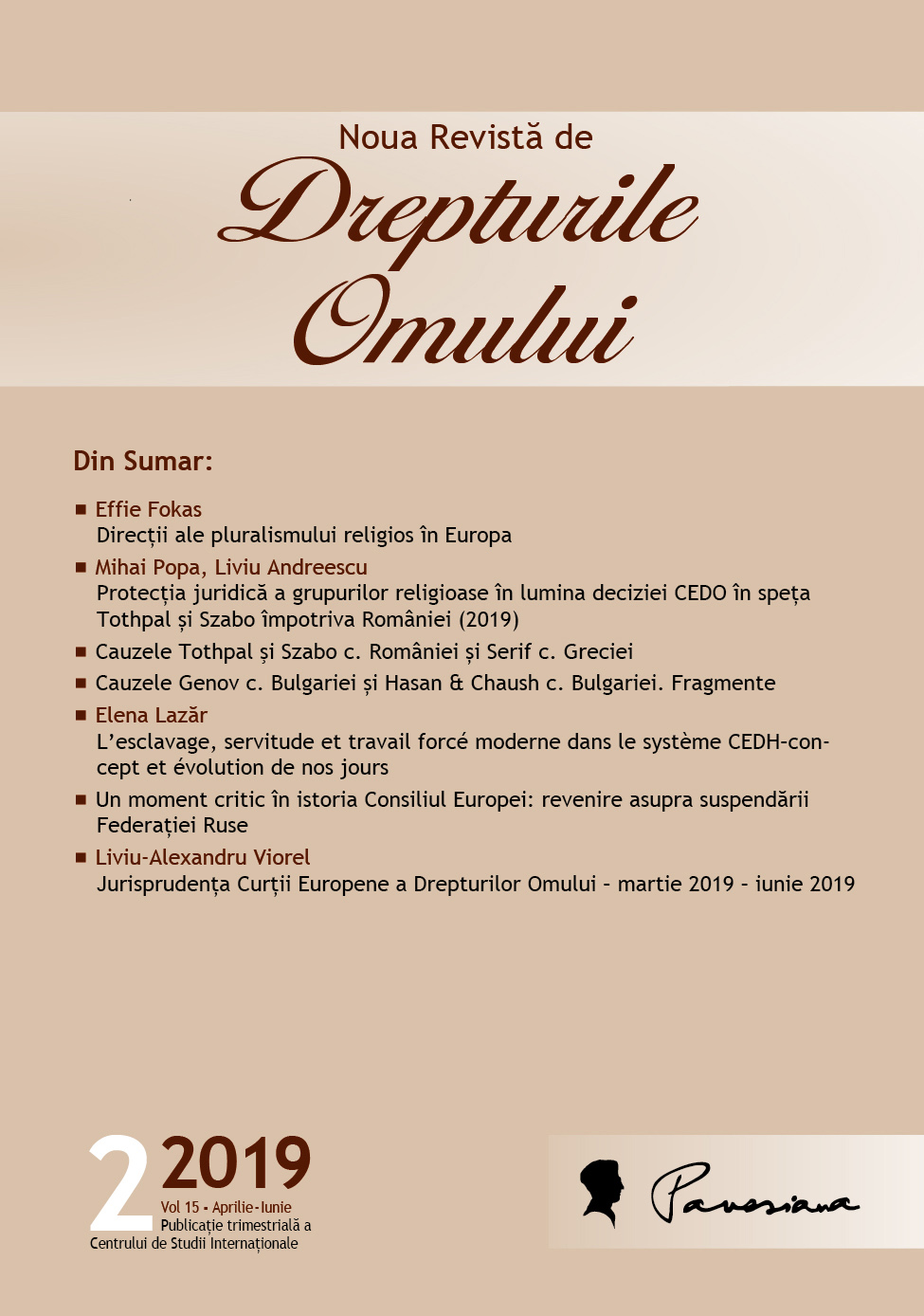
We kindly inform you that, as long as the subject affiliation of our 300.000+ articles is in progress, you might get unsufficient or no results on your third level or second level search. In this case, please broaden your search criteria.

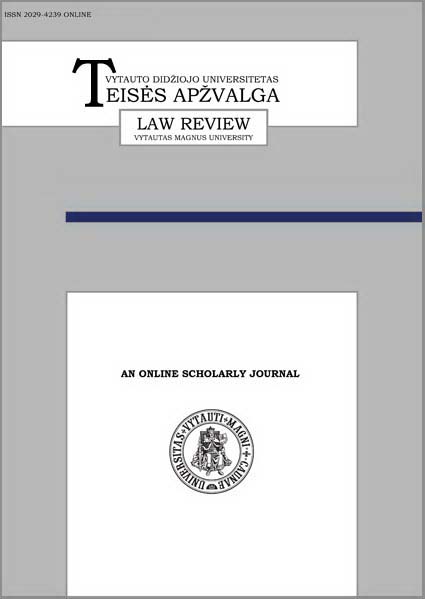
The aim of this article is to discern and compare the different positions on whether the right to water is recognized as a derivative or an independent human right and how each ground affects the nature of State’s obligations. In order to achieve this aim, in the first two parts of this article two main views on the ground of the right to water are presented – firstly, that the right to water is derived from other existing human rights, and secondly, that it is a self-standing right. Examining the State practice and relying upon the previous analysis of judicial decisions, the legal grounds for establishing right to water are compared. The views that human right to water is a self-standing right or established in customary law are analyzed and subsequently rejected, since only opinio juris of States is moving towards greater recognition of this right and the uniform practice, under traditional notion of customary law, is missing. While the position that right to water derives from ICESCR is criticized as potentially creating a new right through creative interpretation of the Covenant by CESCR, majority of States and judicial bodies agree with this derivation of the right to water from the right to adequate standard of living and right to health. In the third part of the article, comparative analysis of judicial decisions from different jurisdictions is performed, which has shown that while the courts do not regard the right to water as a self-standing human right, they adjudicate water related issues as part of other fundamental human rights, such as right to life, dignity, and freedom from torture, right to health. Therefore, even in the absence of an explicit recognition of the right to water, the courts creatively adjudicate this essential element for human survival.
More...
In order to gain military advantage, the armed forces of states are exploring autonomous weapons that, by their technical capabilities (response speed, accuracy and military power), exceed the physical capabilities of the people. The lawful use of these weapons in armed conflicts must comply with the principles of international humanitarian law. Against this background, the article seeks to answer the question of whether the use of autonomous weapons for deadly force is lawful. First of all, article defines the concept of autonomous weapons. Identifying the problems faced by scientists in defining autonomous weapons for which there is still no internationally recognized definition. The following is the advantages of autonomous weapons in comparison with people in armed conflicts are summarized and the problems of these weapons are mentioned. Secondly, article explains the concept of deadly force and discusses the concept of meaningful human control over autonomous weapons. The aspects of the application of international humanitarian law and the basic principles governing the lawful use of deadly force during an armed conflict are discussed below. Finally, the problematic aspects of the use of autonomous weapons for deadly force are identified. Thereafter a research methodology is developed and the legitimacy study on the use of autonomous weapons for armed conflict is conducted. The method of qualitative content analysis was chosen for the study. This approach analyzes the strategies of three states with the highest military power in the world the United States, Russia, China), in terms of the use of autonomous weapons for deadly force, in order to clarify their views on the legitimacy of the use of these weapons. These strategies were evaluated against three criteria: 1) whether the use of autonomous weapons for deadly force in armed conflict violates international humanitarian law principles; 2) states positions on the ban on lethal autonomous weapons; 3) whether human control is required using autonomous weapons for deadly force. Based on the research, the United States and Russia have indicated that the use of autonomous weapons for deadly force will not violate the principles of international humanitarian law, as it is a human duty to ensure that these principles are respected before using the weapon. Meanwhile, China noted that autonomous weapons will not be able to comply with distinction and proportionality principles and the use of these weapons for deadly force will violate international humanitarian law. The United States and Russia did not agree to ban lethal autonomous weapons systems. Whereas China supports a ban on the use of autonomous weapons but not on development or production. The study revealed that states are united in agreeing to maintain a particular human control over lethal autonomous weapon systems. Performed qualitative content analysis showed that the use of autonomous weapons for deadly force is lawful.
More...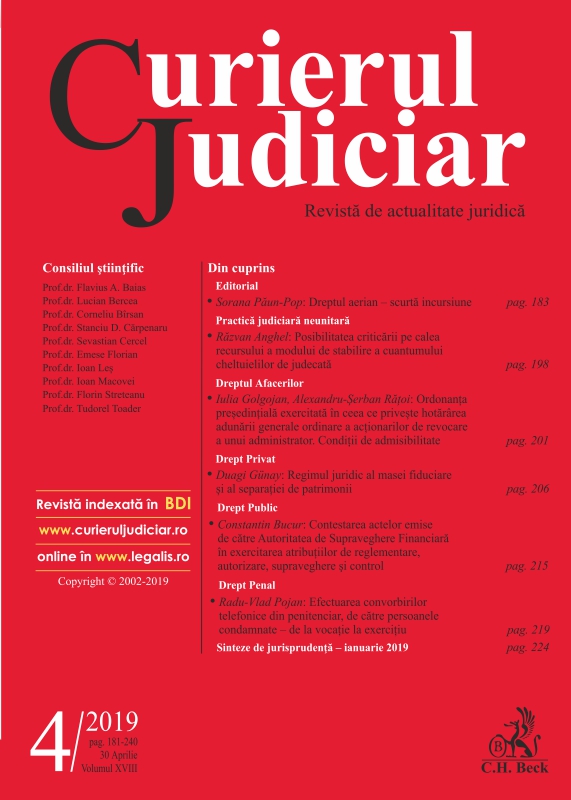
The article briefly presents the air law concept as well as the main Romanian institutions in charge of rulemaking in the aviation field, supervision, air navigation services provison as well as accident and incident investigations.
More...
The section contains a presentation of the most important cases brought before the International Court of Justice, the International Criminal Court and the Special Criminal Courts and also a review of the treaties or agreements concluded, the conferences being organized and the celebration of significant events with both international and national impact.
More...
The prohibition of discrimination and the right of access to justice are guaranteed by several international treaties and the national legislation in force in the Republic of Serbia. In terms of Private International Law, it could be questioned whether the duty of foreign nationals to provide the security for costs (cautio judicatum solvi) when initiating a lawsuit still adequately protects the defendant. In that respect, the issue of possible breach of the Serbian Constitution by Article 82 of the 1982 PIL Act arises. Consequently, depending on the response to this issue, there is a general concern about the responsibility for discrimination, which calls for urgent amendment of the relevant provision stipulated in the 1982 PIL Act.
More...
The basis for procedural protection of environmental rights is found in administrative procedure. In order to establish guarantees of an adequate and effective legal protection in environmental matters by administrative law instruments, the general administrative procedure should be transformed. Traditionally a one-party procedure, the administrative procedure necessarily becomes a two-party procedure, involving the participation of the public concerned. The legal framework for the protection of property rights which endanger or jeopardize the state of the environment is contained in the substantive law. The Serbian legal system provides such protection by envisaging general institutes in the field of compensation for damage and regulation of property rights. The case law provides many examples that point to numerous inconsistencies in the system of environment protection in civil and administrative proceedings. Thus, for example, operators of general-purpose activities are obliged to compensate injured persons only for damage exceeding normal limits. On several occasions, the case law has shown that the compensation of non-material damage for sustained physical pain, due to the negative impact of industrial and adjacent objects on the environment, can only be granted if the existence of property damage exceeding the “normal limits” is established. In doing so, emissions must be of such intensity as to cause continuous physical pain. According to the case law, periodic emissions, even when they exceed the limit values during certain intervals, do not justify the compensation of non-material damage. The reasons for the underdeveloped legal institutes that provide environment protection are found not only in the fact that the issues of protection of a healthy or adequate environment of certain quality fall into a branch of law that has been developing since the 1970s but also in the fact that there is insufficient understanding of the principles on which environmental law is based and whose implementation entails the necessary and essential change of legal instruments in both public and private law. The plaintiffs in public or private proceedings concerning environmental issues do not only protect their own rights and interests but also the general interest of environment protection. Infringement of the rights or interests of an individual caused by increased environment pollution would never remain a hindrance only to the protection seeker. New legal institutes that would ensure a more efficient, economical, timely and substantive protection of environmental rights should regulate issues of relevance to protection when an individual or group’s interest is endan gered or jeopardized, as well as in the event of a violation of the right to healthy environment as a object of special public interest and value. Linking the protection of this right to the public interest raises the issues of importance that environment protection has in a society and the way in which public interests are graded, including the interest of environment protection. Starting from this assumption, the paper points to the principles of environmental law and the dominant features of public law which have a significant impact on environmental protection in cases where legal institutes of private law are applied.
More...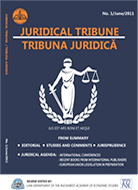
This article explores the Brexit referendum, focusing on the political events that led to the vote, namely, the Conservative Party’s return to power, David Cameron’s attempts to appease the European divide within his party and the role played by the British Parliament in the whole process. It then discusses whether the referendum was the most suitable way to decide on European Union membership, considering the sovereignty of the British Parliament, as well as the contrast between representative democracy and direct democracy.
More...
Marine and coastal environment are under pressure from several pollution sources. Most of the environmental law was developed on a sectoral basis and does not reflect the interdependence of the various issues and their solutions. Since the adoption of Blue Book, EU legislation to protect the marine environment has been progressively implemented inmany relevant areas: Fisheries, Shipping, Tourism, energy, etc. The Integrated Maritime Policy covers several cross-cutting policies, more specifically blue growth, marine data and knowledge, maritime spatial planning, integrated maritime surveillance, and sea basin strategies. Oceans and sea are influenced by many activities, interests and policies and are interlinked. A holistic, integrated approach is the best way to handle maritime affairs, with States cooperation not only on an EU States basis but also with third States and International Organizations. International Organizations provide an essential forum for international cooperation in relation to environmental issues. In this context they have two important roles to play: environmental policy-making and the development of international environmental law.
More...
Actually, the second part of the 20th century characterized by the beginning of the conceptual understanding of “human security” in a system of the international security and international law, in general. It had linked with the historical past, such as world wars, many local military conflicts which claimed the lives millions of people, repressions, scientific and technological progress (the invention of nuclear weapons, various weapons of mass destruction), etc. Besides, it has linked with the present, such as terrorism, human trafficking, acts of aggression, etc., that entails the inevitable destruction of mankind, where the safety/security plays a crucial role. That`s why, in the early 1990s, the concept of “human security” was introduced into the international discussion. A number of international instruments of the universal and regional character were adopted about the issue of the protection of human rights in the context of “human security”, was termed the new concept of the 20th and the 21st centuries. In this context, the essential objective of this manuscript is the analysis of doctrinal, legal understanding of the concept of the “Humans Security”, taking into account the present conditions and the example of Ukraine (the situation of the East part of the country).
More...
Approaching such a subject is undoubtedly of particular scientific interest, contributing to the clarification of several aspects regarding the content and delimitation of international investment law, with an emphasis on the law and doctrine of international law, but also on the jurisprudence of international courts. The originality and scientific innovation resides in the way of approaching the research of the legal regime of foreign investments, both from the point of view of interdisciplinarity, interference and interconnections between the fields of incident law, as well as by identifying a coagulating, unifying factor – the international justice and the mechanisms that are put into operation. This approach calls for the creation of a learning mechanism, of study within the university framework of the discipline of International Investment Law and the deepening of the specific notions and problems within some master programs.
More...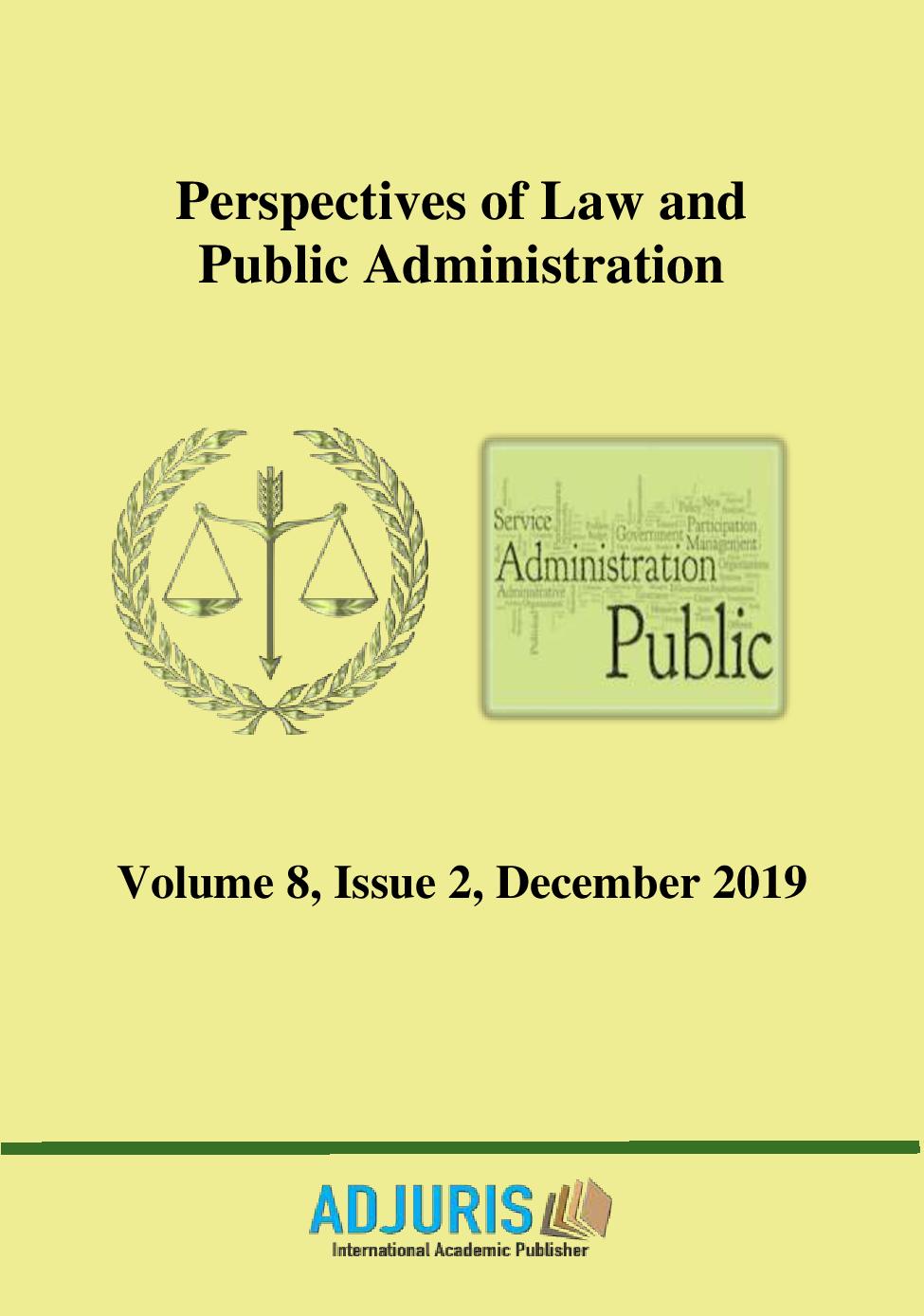
This paper aims to present and analyze the multiethnic principles of international community administration and policy in Kosovo during the period of international administration of Kosovo and the period of negotiations for the final status settlement of Kosovo. The international community has been neutral with the political aspirations of the people of Kosovo for self-determination and has implemented a policy that has essentially built a multiethnic political concept on Kosovo as a political entity. The imposition of these multi-ethnic principles in the construction of the state of Kosovo runs counter to many principles of the functioning of democratic states, whose sovereignty derives from the people, and governance is legitimized by the majority through democratic elections. The paper will conclude that despite the compromises made in the nature of the state of Kosovo with regard to the rights of minority communities in Kosovo,especially the Serb minority, the rejection of this minority towards Kosovo's institutions has increased due to the autonomy offered through the constitution, numerous laws and agreements negotiated in Brussels between Kosovo and Serbia.
More...
Economic espionage is the unlawful targeting and theft of critical economic intelligence, such as trade secrets and intellectual property. The term refers to the clandestine acquisition or outright theft of invaluable proprietary information in a number of areas, including technology, finance, and government policy. Offenders get cheap access to critical information, leading victims to suffer economic losses.
More...
In this paper, the author explores the legal treatment of no challenge clauses in license agreements. In effect, these clauses prohibit a licensee to challenge the validity of intellectual property rights which are the subject matter of a license agreement for a specified period, usually within the duration of the contract. The author analyzes the legality of contracting the no challenge clause in license agreements from the aspect of European Union Competition Law, given the fact that there are still no positive legal norms governing this institute in Serbian competition law.
More...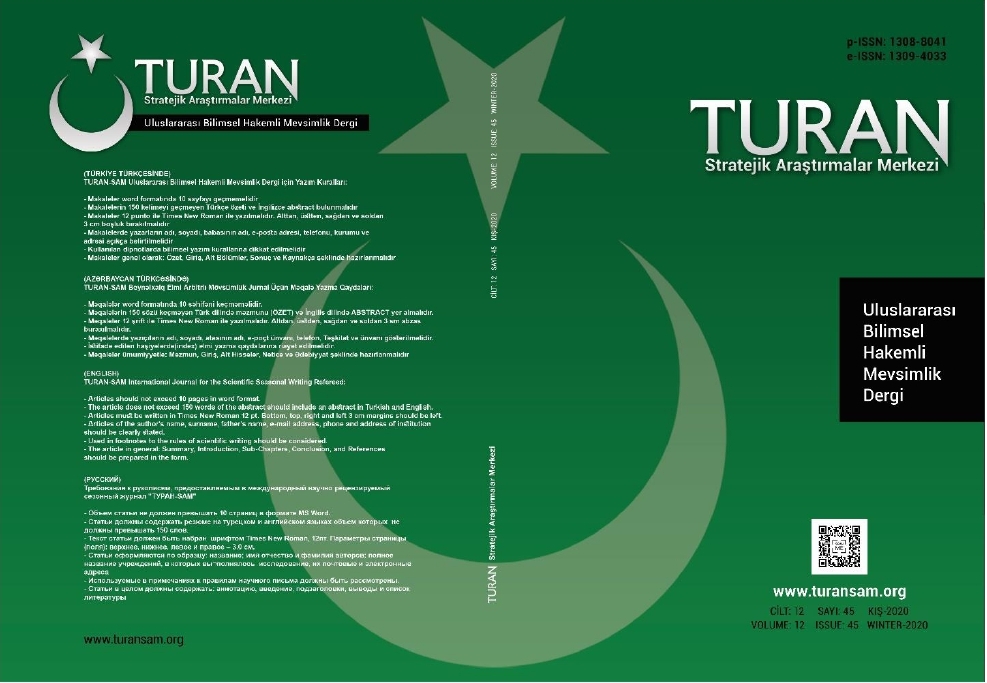
Over the past almost 30 years UN peacekeeping operations have been consistently tainted by widespread reports of sexual assault, abuse and exploitation committed by peacekeepers. The fact that these peacekeepers, who are seen as a symbol of hope for so many in need around the world, could be further victimizing those they are intended to protect and help is a horrible situation to imagine not to mention live the reality of. This epidemic is exacerbated by the lack of ability on the part of the UN to put an end to these types of abuses. We will examine for the purposes of this paper the history of abuse and violations on UN peacekeeping missions, the measures taken by the UN to address the problem, outside suggestions for solutions, and finally address my personal views on how these issues can be solved in the long term.
More...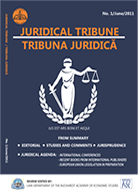
The article reveals the results of the study of experience of border guard units of the world's leading countries on combating terrorism and formulation of the prospects of its implementation in the State Border Guard Service of Ukraine (SBGSU). The research was carried out using the methods of legal comparative studies, that is, by comparing the legal support of counter-terrorism units of the state border protection in the leading countries of the world and Ukraine. Based on this, proposals for the improvement of antiterrorism bodies of the State Border Guard Service of Ukraine have been formulated. Ukraine should use the foreign experience in this sphere, namely: create anti-terrorism legislation, which is accurate, clear, addressing real threats; to recognize all terrorist acts as criminal; define the system of bodies engaged in combating terrorism, including borderguard authorities, giving them sufficient competence; assign the bodies of the State Border Guard Service of Ukraine anti-terrorism functions; interact with the border guard agencies of different countries in the context of counter-terrorism activities and exchange of information; apply the latest technical and software developments with investigation and identification of terrorists and means of terror; strengthen anti-terrorist activities during border control.
More...
Nowadays academia offers new approaches to understanding of state borders, territorial disputes, armed conflicts and wars. While the principles of territorial integrity and inviolability of frontiers are central to the current system of international law, they are sometimes inoperative before the law of force. Moreover, the peaceful resolution of territorial disputes contributes to international security. The purpose of this article is to examine the problems of the legitimacy of acquisition of territory in the past and present, as well as to provide insight into some issues related to the state sovereignty over disputed areas in international territorial disputes. The historical, comparative, inductive methods were used while researching the problem of legitimacy of acquisition of state territory. The study may be implicated during taking decisions concerning investments in Crimea, Transnistria or Nagorny Karabakh.
More...
The present research paper describes the most traditional ways of today’s mass-marketing financial crimes such as fraud. Digital banking is now used daily for checking account data, making purchases, paying the bills, transfer money, print statements, etc. Online fraud is a crime committed with on-line software to unlawfully allocate money from both bank' and payment systems' account and/or transfer money to another bank account. Banks are not so much targeted in today's world, there's a lot of money in cyberspace, in modern digital systems and data networks. The main task of this article is to determine the most common forms of online financial crimes, such as “Hacking” or electronic transmission unintended for the interceptor, such as passwords, credit card information, or other types of identity theft. The article discusses the features of legal regulation and the activities of the Ukraine to protect citizens form Internet frauds and to avoid Internet scams, phishing and other cybercrimes in Internet. In this article, we review some principles of qualitative data collection, analysis, and strategic planning to help scientists, lawyers, and law students interested in conducting research in their practice to continue their learning in this area.
More...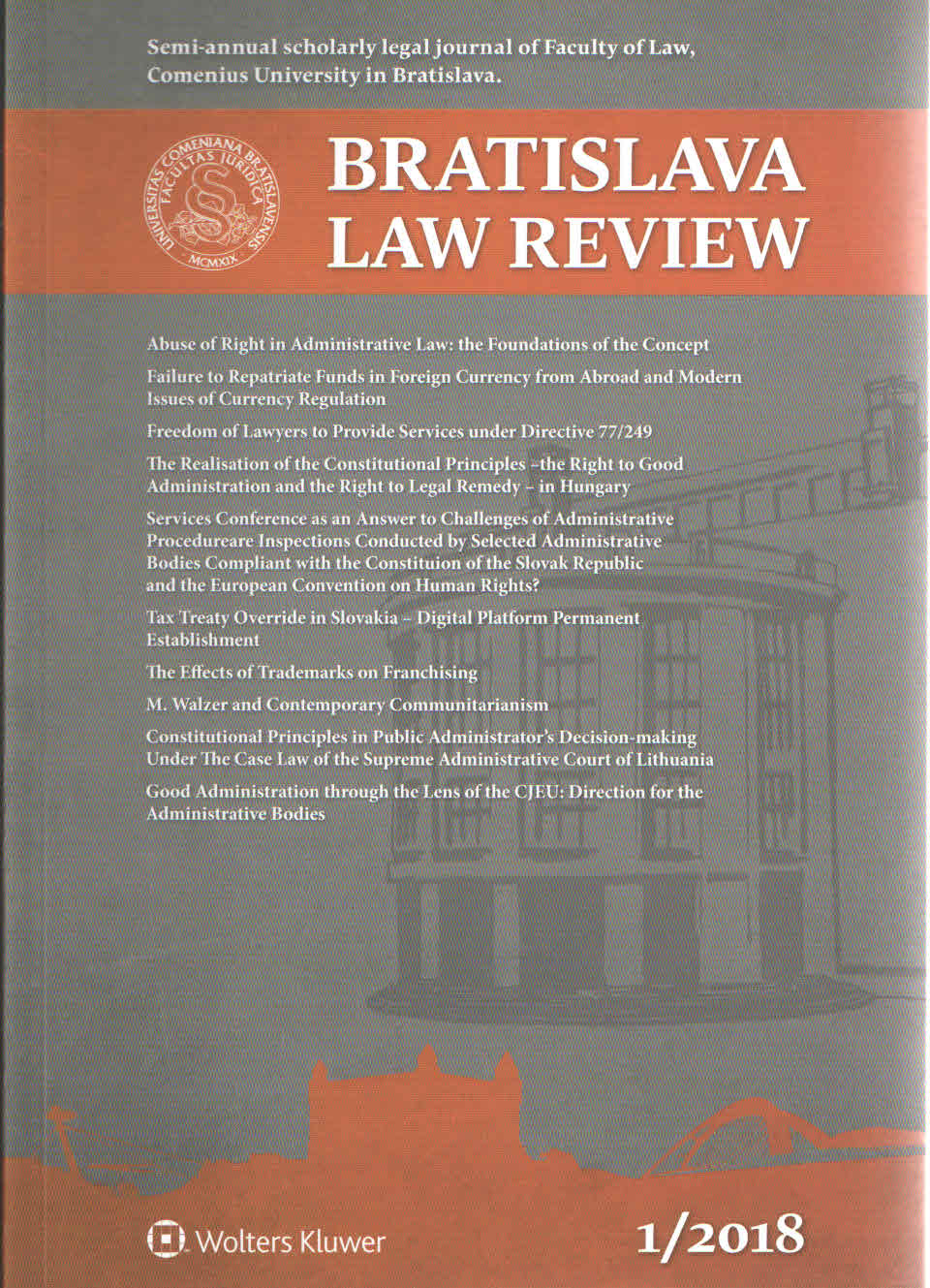
The following article deals with one of the different forms of free movement of lawyers in the EU, i.e. the freedom to provide services on a temporary basis. The relevant primary law alongside the applicable legislation, as interpreted by the Court in its case-law, is analysed. Special attention is paid to certain peculiarities of cross-border provision of services by lawyers, in particular the respect of rules of professional conduct.
More...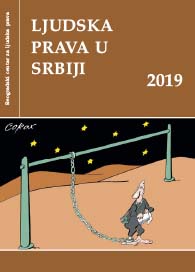
Republika Srbija je ugovornica svih najvažnijih međunarodnih ugovora koji zabranjuju mučenje, nečovečno ili ponižavajuće postupanje i kažnjavanje.1 Prema tome, pravni okvir, praksa i napredak u oblasti poštovanja apsolutne zabrane zlostavljanja izloženi su periodičnoj kontroli univerzalnih i regionalnih tela za zaštitu ljudskih prava.
More...